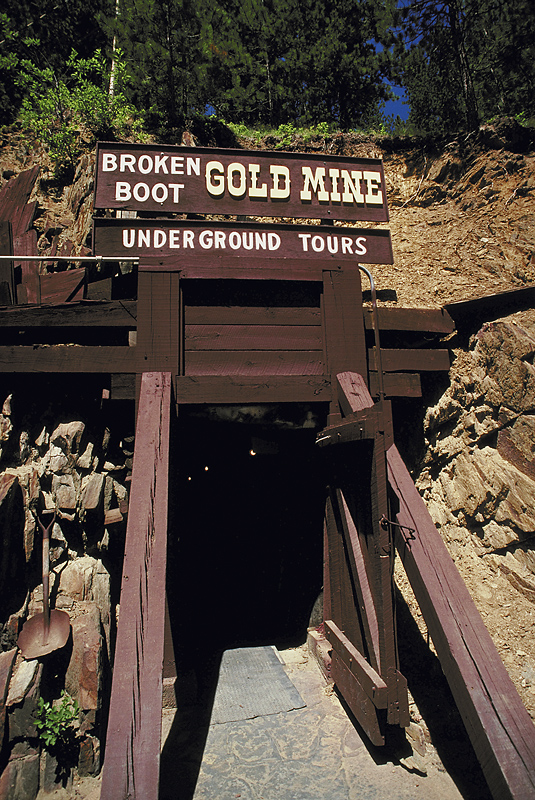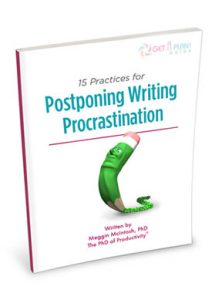Mining Your “Content Inventory” to Answer “What Can I Write About?” by Meggin McIntosh, PhD
 Cathy Stucker (The Idea Lady) presents the idea of mining your “content inventory” for writing ideas. Here are ten places I’ve been able to mine productively. See which you can use as a treasure trove for yourself.
Cathy Stucker (The Idea Lady) presents the idea of mining your “content inventory” for writing ideas. Here are ten places I’ve been able to mine productively. See which you can use as a treasure trove for yourself.
-
Previous articles you have written that were never published, but still have plenty of good content there. Look in your file cabinet and look on your hard drive.
-
Course content you have developed. It is incredible when you begin to look at everything you have created for your classes, workshops, or other trainings and then start to think about how you can work with that content to create new articles, documents, or other written material.
-
Books (or other materials) you have written that have been published. There are so many publishing options and so many different copyright policies – so figure out whether you own the copyright (vs. the publishing company) and if it’s you, well then, for heaven’s sake, start packaging that information into other formats. If someone else owns it, there are still many ways to re-view your information and see what it prompts for you.
-
Books you have written that haven’t been published. Wouldn’t it be nice to think that every single item that a writer ever wrote actually got published? Well, that’s not how it works. For whatever reason, you have books and other materials that didn’t make it to publication. Look at those with a fresh eye and see what you can mine.
-
Speeches you have given. Whether you have given speeches at conferences, conventions, Lions (or other service) clubs, commencements, or any other event, you probably wrote those out or at least had extensive notes. That is content you can use now for other writing you are doing. You’ll be surprised at what lurks in your file cabinet (physical and virtual).
-
Answers to questions you have written. Some people are asked the same questions over and over and smart folks figure that it is a good idea to have a document with answers to those most frequently asked questions. See if you have some documents like that and if you could revise some of that content for an article.
-
Blog posts or listserv responses you have written. Some people’s posts or comments are hundreds (or even thousands!) of words long. If some of yours are, then grab that content and see who else might be interested in reading it.
-
Journals you have written. If you are someone who has kept a journal for any length of time, it is worth going back to see what nuggets you have captured or what amazing thoughts you have put into writing. My guess is that you’ll find some “good stuff.” Why should we all wait until after you die to get to read your insights?
-
Internal manuals or memos you have written.
-
Reports or grant proposals. I lumped these two together (partly because this *is* a top ten not a top eleven), but also because they are similar types of writing. If you are someone who has written a grant, you know the amount of narrative that goes into these documents. Pull that content and see how else you might be able to share that. Consider those reports you’ve written (and this could even go back to papers you wrote in undergraduate or graduate school), but mostly here, I’m referring to grant reports, reports to committees, reports on the state of _____, or any other number of “reports” that you have written over the years.
I’m telling you from experience that you will be stunned by the amount of written material that you already have that can be revised, edited, repurposed or in some other way used to increase your published output. It’s part of how I ended up (at this point) with over 600 articles in EzineArticles. There is extensive new material I wrote that has been published there but a great deal that I got from mining my current inventory.
© Meggin McIntosh, PhD (also known as “The PhD of Productivity”®). One of the ways that you can learn from Meggin about productive writing is through her 30 Articles in Just 30 Days program (www.30ArticlesinJust30Days.com).
 Do you know any writers who procrastinate? Could that writer actually be you? We writers know perfectly well that we procrastinate, sometimes in very clever ways. In need of tips to help you stop? You’ll want the Get a Plan! Guide® to Postponing Writing Procrastination, part of the Get a Plan! Guides® series.
Do you know any writers who procrastinate? Could that writer actually be you? We writers know perfectly well that we procrastinate, sometimes in very clever ways. In need of tips to help you stop? You’ll want the Get a Plan! Guide® to Postponing Writing Procrastination, part of the Get a Plan! Guides® series.
Inside, you’ll find 15 practices to postpone your writing procrastination. You’ll receive the ideas and inspiration to do your work easier, faster, and in a more focused fashion.




